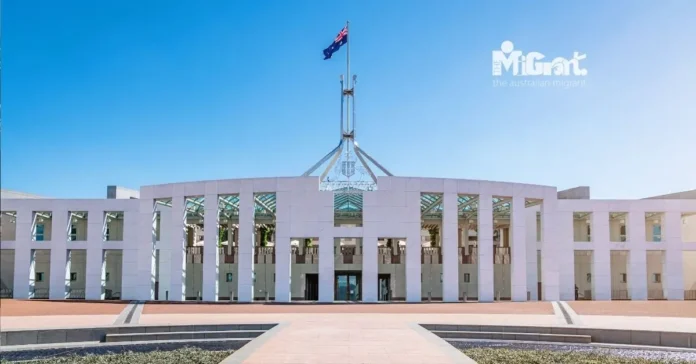Australia is a country known for its rich diversity, but if you want to become a citizen, there’s one thing the government emphasizes: embracing Australian values. These values represent what it means to live in Australia, from respecting democracy to treating people equally. If you’re considering applying for citizenship, understanding and accepting these values is an important part of the journey.
What Are ‘Aussie Values’?
When we talk about Australian values, we’re talking about the core beliefs that shape life in Australia. Some of the key values include:
- Respect for the rule of law: This means that everyone, no matter their background, follows the laws of the country.
- Equality of opportunity: In Australia, people have equal chances to succeed, regardless of their gender, religion, or ethnicity.
- Freedom of speech and religion: Australians have the right to express their opinions and follow any religion they choose—or none at all.
- Fairness and a ‘fair go’: This is the idea that everyone should be treated fairly and have a chance to do well in life.
- Mutual respect and tolerance: Australians value respect for other people’s rights and differences, making the country a welcoming place for all.
These values form the foundation of Australian society and play an essential role in shaping how the country operates day-to-day.
The Role of Values in the Citizenship Process
The Australian government has made it clear that embracing these values is crucial for anyone wanting to become a citizen. During the citizenship test, applicants are asked questions about Australian values to show they understand and agree with these principles. Furthermore, during citizenship ceremonies, new Australians make a formal pledge to uphold these values, reinforcing their commitment.
The government also uses these values as a way to promote unity and social harmony. By sharing common values, it’s believed that all Australians—no matter where they come from—can live together peacefully.
Challenges Migrants Face in Embracing ‘Aussie Values’
Migrating to a new country comes with its own set of challenges, and embracing Australian values can be difficult for some. Here are a few obstacles migrants might face:
- Cultural Differences: Some migrants come from countries where the customs and traditions are very different. For instance, ideas about gender equality or freedom of speech may not align with what they were used to in their home country.
- Balancing Old and New Values: While it’s important to adopt new values, it’s also natural to want to hold onto your own cultural identity. Finding that balance can be tricky for many.
- Language Barriers: Understanding Australian values often requires a good grasp of the English language. Without this, it can be harder to learn about these values and pass the citizenship test.
How Migrants Can Embrace ‘Aussie Values’
There are many ways migrants can learn about and embrace Australian values, helping them integrate smoothly into society:
- Education and Resources: The Australian government provides plenty of resources, including citizenship test booklets and free language courses, that can help migrants prepare for citizenship. Many communities also offer integration programs to help newcomers.
- Real-Life Examples: Stories of migrants who successfully embraced Australian values can be inspiring. For instance, some migrants have shared how learning about Australia’s culture helped them feel more connected and welcome.
- Getting Involved: Participating in local community events, volunteering, and even attending local council meetings are great ways to immerse yourself in Australian culture and values.
The Benefits of Embracing Australian Values
Why is embracing Australian values important? There are many benefits:
- A Sense of Belonging: Adopting these values can make migrants feel more at home in Australia. It helps create a sense of belonging and makes it easier to connect with others.
- Opportunities: People who embrace Australian values often find that doors open for them—whether it’s in terms of education, jobs, or social opportunities.
- Unity and Harmony: By sharing these values, Australia can maintain a peaceful and united society, where people from all walks of life can live together harmoniously.
The Debate Around Australian Values and Citizenship
While many support the idea of embracing Australian values, there has also been some criticism. Some argue that the government’s focus on these values can feel like a push for migrants to abandon their own cultural identities, which may not always be realistic or fair. Others feel that the citizenship test and the emphasis on values might be too rigid and overlook the complexities of cultural integration.
Supporters of the government’s approach, however, argue that these values are not about forcing assimilation but rather ensuring that everyone who lives in Australia shares a commitment to mutual respect, fairness, and democracy.
Adopting Australian Values for a Stronger Future
Embracing Australian values is a key part of the citizenship process, and it plays an important role in building a strong, united community. While there are challenges, especially for migrants from different cultural backgrounds, adopting these values can lead to a greater sense of belonging and open up new opportunities.
Whether you’re preparing for your citizenship test or simply looking to understand more about life in Australia, these values are at the heart of what makes this country a great place to live. Embrace them, and you’ll find yourself not only better prepared for citizenship but also more connected to your new home.
Looking to apply for an Australian visa or explore migration opportunities? We can connect you with a trusted Registered Migration Agent who specializes in student, skilled worker, partner, family, and visitor visas. Whether you're planning to study, work, or settle in Australia, they’ll guide you through every step of the process. Send your inquiries to themigrant.au@gmail.com, and we’ll help you get in touch with the right experts for your visa and migration needs!



